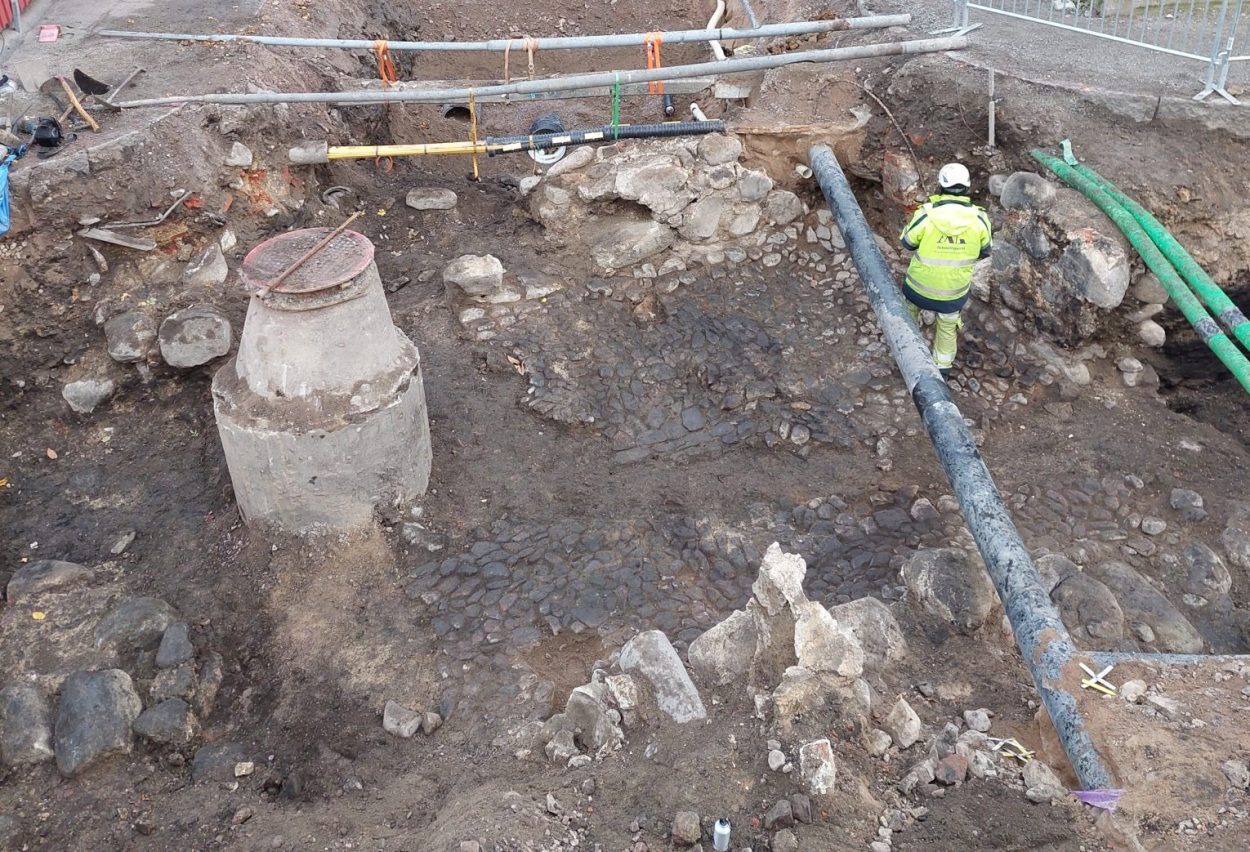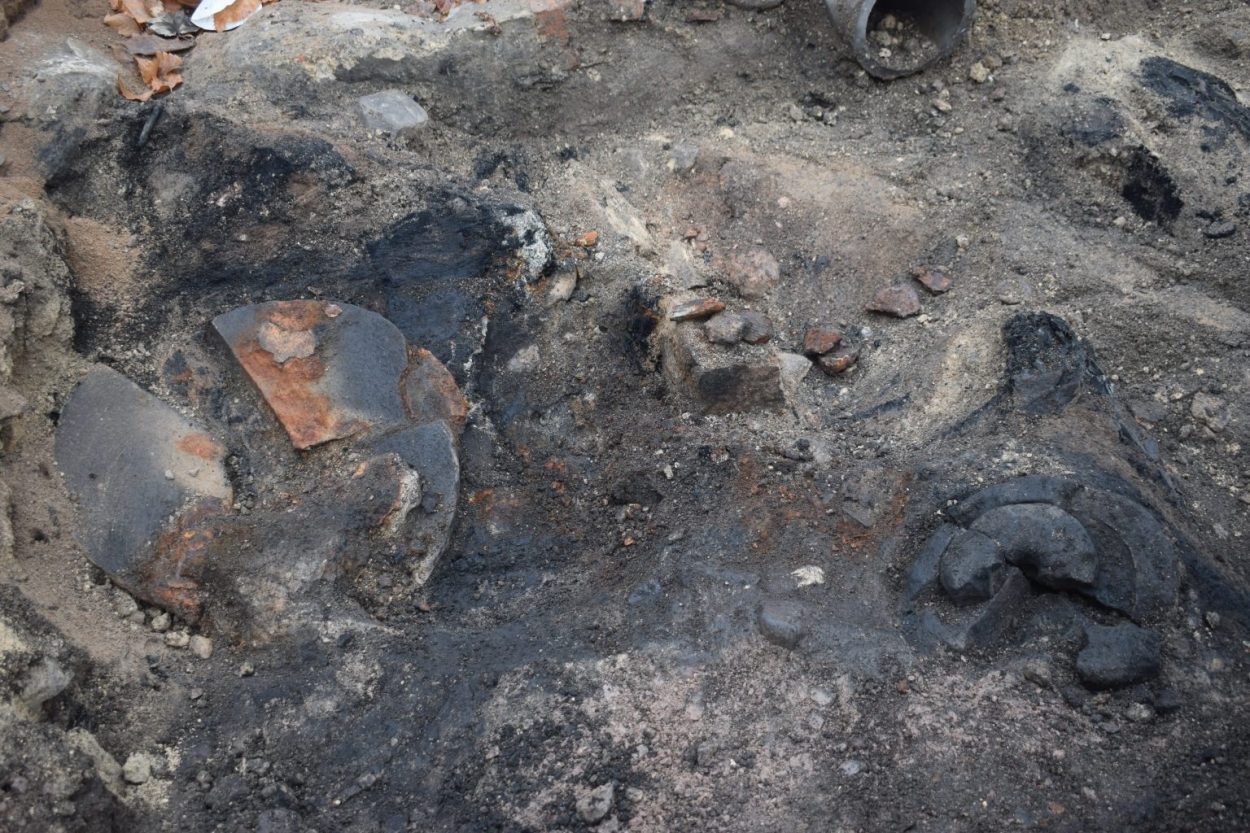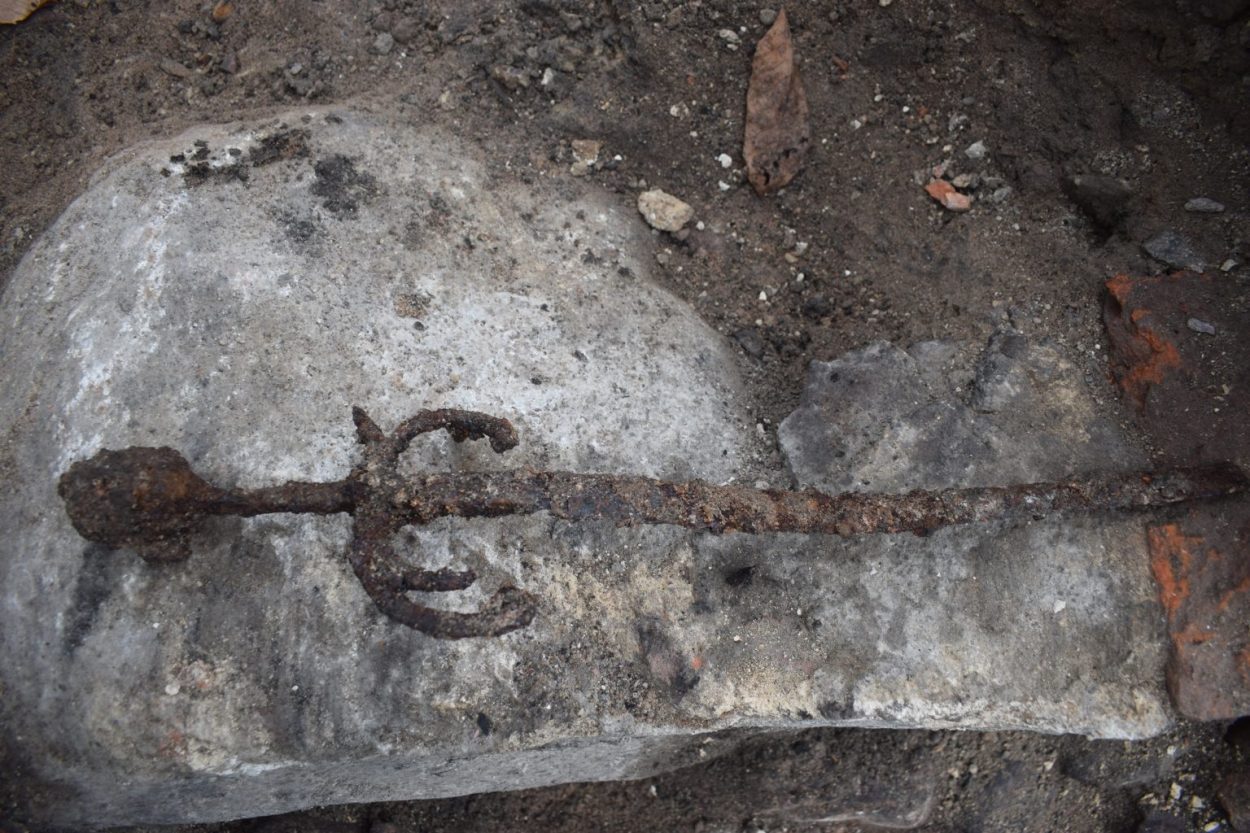Archaeologists from Arkeologerna have unearthed an early 17th century sword from the time of the Kalmar War.
The Kalmar War was a conflict between Denmark–Norway and Sweden that lasted from 1611 to 1613. The war was the result of ongoing disputes over trade routes, due to Denmark–Norway controlling a monopoly through the strait between the Baltic Sea and the North Sea.
Sweden sought to establish an alternate route through Lapland to avoid paying a toll on the use of the Øresund, or “Sound” strait, a toll that constituted up to two thirds of Denmark’s state income in the 16th and 17th centuries.
King Christian IV of Denmark and Norway protested to the Swedish King, Charles IX, but his protests over the new route was ignored. Finally, in April 1611, in response to Sweden’s claim of a traditionally Norwegian area in Northern Norway, Denmark-Norway declared war upon Sweden and invaded.
A force of 6,000 Danish troops was sent to Kalmar to lay siege to the city and castle. For centuries, Kalmar was of strategic importance, even being described as ‘the key to Sweden’, as the city and fortress controlled the Kalmar Straight and access to the north along the Swedish east coast towards Stockholm.
Although the city fell to the Danes, they were unable to completely subdue the Swedish forces, resulting in the signing of the Peace of Knäred in January 1613.

Archaeologists from Arkeologerna have been excavating a stone cellar in the old town of Kalmar, located at the intersection of the Kungsgatan and Västerlånggatan roads.
The researchers believe that the cellar may be part of a medieval farm, which by referencing against contemporary texts, suggests that it was once owned by Gotskalk Hulskede in 1368. Other sources document the farm in 1483, however, the farm appears to have been burned down in the summer of 1611 during the time of the Kalmar War.
The floor of the cellar was covered with broken brick, stone and wood (likely from the upper floors of the buildings) as well as two heavily fire-damaged hand grinders and a pile of burnt grains.

While removing the collapsed material, the team uncovered a rare Danish sword, which according to specialists, shows an evolutionary leap from a medieval sword to more modern designs that would eventually dominate the 17th century battlefield.
In a statement issued by Arkeologerna: “At the time of the Kalmar War, the European armies were in a turning point – the military revolution – where new tactics and weapon systems were being tested. This find fits well into the arsenal of the time.”
Header Image Credit : Arkeologerna – CC BY





